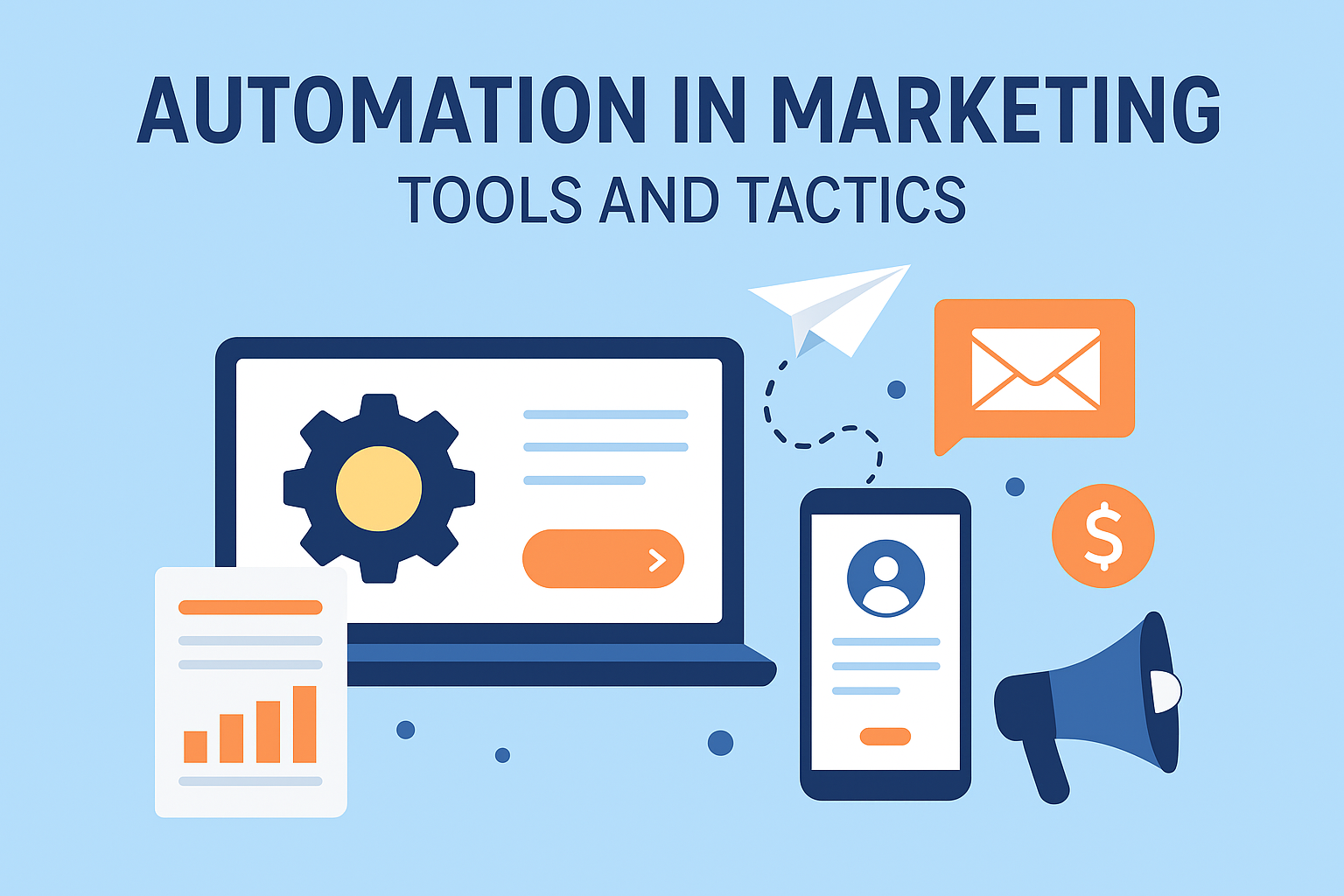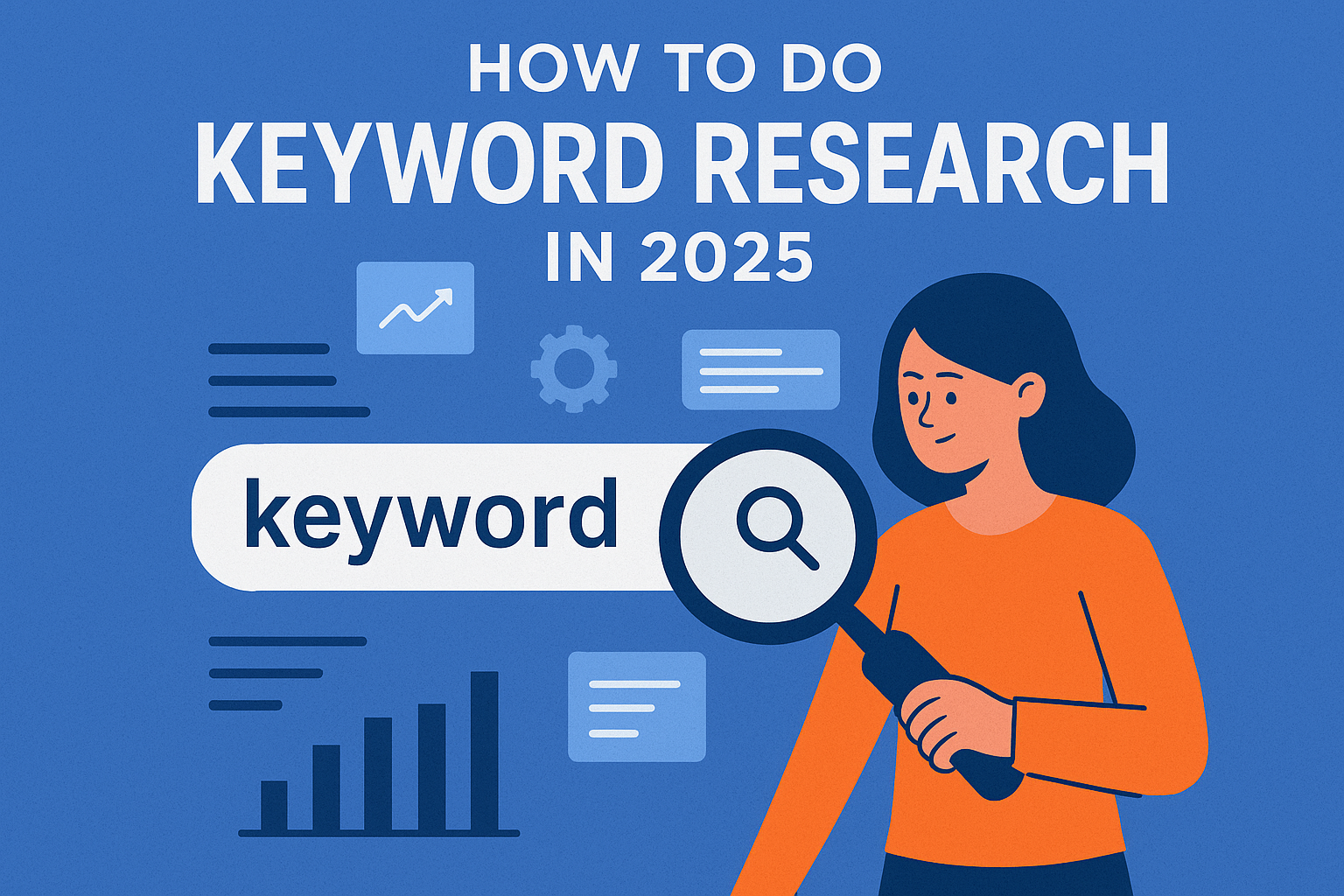Introduction
Marketing has never been more competitive. With digital channels expanding rapidly, businesses need to reach audiences at scale while still delivering a personal touch. That’s where marketing automation comes in. By combining software, AI, and strategy, companies can automate repetitive tasks, nurture leads, and maximize ROI.
Whether you’re running email campaigns, scheduling social media posts, or segmenting customer data, automation ensures that you work smarter, not harder. In this guide, we’ll explore what marketing automation is, why it matters, the best tools, and the tactics you can use to take your campaigns to the next level.
What is Marketing Automation?
Marketing automation refers to the use of software and technology to streamline, automate, and measure marketing tasks and workflows. It helps businesses:
- Generate and nurture leads
- Deliver personalized messages
- Analyze customer data for better targeting
- Save time on repetitive tasks
According to HubSpot Research, 76% of businesses that use automation see positive ROI within a year.
Why Marketing Automation Matters
Customers today expect personalization and speed. If a business takes days to follow up on a lead or sends generic emails, potential buyers are likely to move on. Automation helps:
- Improve conversions through lead nurturing
- Boost efficiency by automating repetitive tasks
- Enhance personalization with behavior-based targeting
- Provide analytics for data-driven decisions
Pairing automation with guest posting and link insertion strategies also strengthens SEO, ensuring content reaches the right audiences consistently.
Best Marketing Automation Tools
Below are some of the most trusted tools in 2025 for businesses looking to scale their marketing efforts.
1. HubSpot Marketing Hub
HubSpot is often considered the gold standard for marketing automation. It combines CRM, email marketing, content management, and analytics in one platform.
Key Features:
- Drag-and-drop email builder with automation workflows
- Advanced lead scoring and segmentation
- CRM integration for better alignment with sales
- Analytics dashboards for campaign performance
Use Cases:
- Automating lead nurturing campaigns
- Personalizing customer journeys
- Integrating sales and marketing teams
Who Should Use It:
Startups and enterprises looking for an all-in-one solution.
Pros:
- User-friendly interface
- Robust free plan for beginners
- Excellent educational resources via HubSpot Academy
Cons:
- Costs rise quickly as you scale
- Can be overwhelming for small teams
👉 Learn more at HubSpot.
2. Mailchimp
Originally an email marketing tool, Mailchimp has grown into a complete marketing automation platform.
Key Features:
- Automated email campaigns triggered by user behavior
- AI-powered recommendations for send times
- Landing page builder and social posting
- Analytics for campaign tracking
Use Cases:
- Small businesses creating email campaigns
- E-commerce stores sending product recommendations
Who Should Use It:
Entrepreneurs and small teams with limited budgets.
Pros:
- Affordable pricing tiers
- Easy-to-use templates
- Built-in AI features
Cons:
- Limited compared to advanced platforms like HubSpot
👉 Explore Mailchimp.
3. ActiveCampaign
ActiveCampaign specializes in customer experience automation. It combines email, CRM, and sales automation.
Key Features:
- Behavior-driven email campaigns
- Lead scoring and nurturing
- SMS and chatbot automation
- Advanced segmentation options
Use Cases:
- Businesses running complex multi-channel campaigns
- Companies that want deep personalization
Pros:
- Excellent customer support
- Affordable compared to Salesforce
- Robust integrations
Cons:
- Learning curve for beginners
👉 Visit ActiveCampaign.
4. Salesforce Marketing Cloud
Salesforce is a leader in enterprise automation, offering powerful AI features via its Einstein AI.
Key Features:
- AI-driven customer journey mapping
- Advanced audience segmentation
- Social listening and engagement tools
- Cross-channel automation (email, SMS, ads)
Use Cases:
- Large enterprises managing complex customer data
- Businesses scaling across multiple regions
Pros:
- Highly scalable
- AI-powered insights
- Strong reputation in CRM
Cons:
- Expensive for small businesses
- Requires technical expertise
👉 Learn more at Salesforce Marketing Cloud.
5. SEMrush
Although best known for SEO, SEMrush offers automation for content marketing.
Key Features:
- Keyword tracking and monitoring
- Content distribution and analysis
- Competitor analysis automation
- Social media posting and analytics
Use Cases:
- SEO-driven businesses
- Marketers focusing on content distribution
Pros:
- Industry-leading SEO data
- Powerful automation for reporting
Cons:
- Limited outside SEO/content marketing
👉 Explore SEMrush.
6. Marketo (Adobe)
Adobe Marketo Engage is a robust B2B marketing automation platform.
Key Features:
- Lead management and scoring
- Account-based marketing
- Multi-channel campaign automation
- Integration with Adobe Experience Cloud
Use Cases:
- Enterprises running B2B campaigns
- Companies focused on lead management
Pros:
- Strong lead management features
- Great for enterprises
Cons:
- Expensive for smaller firms
👉 Visit Adobe Marketo.
7. Zapier
Zapier is unique because it connects different apps and automates workflows without coding.
Key Features:
- Connects 3,000+ apps
- Automates repetitive tasks between platforms
- Easy-to-build workflows
Use Cases:
- Automating cross-platform tasks
- Small businesses integrating multiple tools
Pros:
- No coding required
- Affordable for small businesses
Cons:
- Lacks marketing-specific analytics
👉 Learn more at Zapier.
Proven Marketing Automation Tactics
Email Marketing Automation
Set up triggered emails such as welcome emails, abandoned cart reminders, and re-engagement campaigns. According to Campaign Monitor, triggered emails generate 70% higher open rates.
Social Media Automation
Tools like Buffer and Hootsuite allow you to post consistently, analyze engagement, and manage multiple accounts. This ensures brand visibility without constant manual posting.
Lead Nurturing and Scoring
By using link insertion strategies with automated content, you can build authority while ensuring qualified leads reach your sales funnel faster.
Content Marketing Automation
Platforms like SEMrush and HubSpot allow you to plan, create, distribute, and track content performance. Combining this with guest posting services boosts organic reach.
CRM and Customer Journey Mapping
Salesforce and ActiveCampaign let you track customers at every stage, ensuring no lead slips through the cracks.
Best Practices for Marketing Automation
- Start with one channel (like email) before scaling.
- Segment your audience for more personalized campaigns.
- Integrate with SEO tactics such as guest posting and link building.
- Test continuously with A/B testing.
- Monitor results and adjust campaigns accordingly.
FAQs
1. What is the main benefit of marketing automation?
It saves time, nurtures leads, and increases ROI through efficiency.
2. Which is the best automation tool for small businesses?
Mailchimp and ActiveCampaign are affordable and user-friendly.
3. Can automation replace human marketers?
No — it enhances their efficiency but creativity and strategy still need humans.
4. Is automation good for SEO?
Yes, especially when paired with guest posting and content strategies.
5. How much does marketing automation cost?
It ranges from free (HubSpot basic) to thousands per month (Salesforce).
6. Can I use multiple automation tools together?
Yes, with tools like Zapier you can connect platforms seamlessly.
Final Words
Automation is no longer optional — it’s a necessity for businesses that want to thrive in 2025 and beyond. By choosing the right tools and applying the right tactics, you can engage customers, scale campaigns, and drive sustainable growth.
To amplify your automation results, explore our expert services in guest posting and link insertion. For exclusive offers, check out our best deals or contact us directly.



